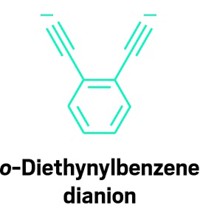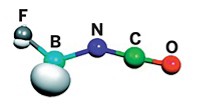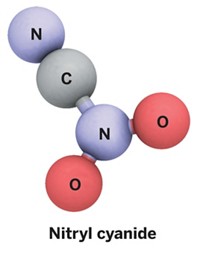Advertisement
Grab your lab coat. Let's get started
Welcome!
Welcome!
Create an account below to get 6 C&EN articles per month, receive newsletters and more - all free.
It seems this is your first time logging in online. Please enter the following information to continue.
As an ACS member you automatically get access to this site. All we need is few more details to create your reading experience.
Not you? Sign in with a different account.
Not you? Sign in with a different account.
ERROR 1
ERROR 1
ERROR 2
ERROR 2
ERROR 2
ERROR 2
ERROR 2
Password and Confirm password must match.
If you have an ACS member number, please enter it here so we can link this account to your membership. (optional)
ERROR 2
ACS values your privacy. By submitting your information, you are gaining access to C&EN and subscribing to our weekly newsletter. We use the information you provide to make your reading experience better, and we will never sell your data to third party members.
Physical Chemistry
Lithium Monoxide Anion Is As Basic As It Gets
LiO- is newly crowned as the most basic molecule known; it may be impossible to beat
by Stephen K. Ritter
June 5, 2008

Researchers have discovered the world's strongest base: the gas-phase lithium monoxide anion, LiO- (Proc. Natl. Acad. Sci. USA 2008, 105, 7647). The compound wins out over the methyl anion, CH3-, the previous longtime titleholder. The researchers who made the discovery think that it will be a difficult challenge to produce a chemical species that is a stronger base than LiO-.
For the past 30 years, methane has been accepted as the weakest acid known. But CH4 can give up a hydrogen ion to form CH3-, which until now had the highest measured affinity of any compound to regain a lost hydrogen ion, making it the strongest base.
In their study, Zhixin Tian and Steven R. Kass of the University of Minnesota, Minneapolis; Bun Chan and Leo Radom of the University of Sydney in Australia; and Bun Chan and coworkers considered that in order to decrease the acidity of a compound below that of CH4, and thereby create a stronger base, one would need to use a highly electropositive substituent.
The researchers selected lithium, which is among the smallest and most electropositive elements, and carried out sets of calculations that show LiOH is about 9 kcal per mol, or about 2%, less acidic than CH4. By their estimation, LiO- should therefore be the strongest base, and they have yet to determine any chemical species that can surpass it.
The team synthesized LiO- by using argon atoms to fragment lithium oxalate (LiC2O4-) in an electrospray ionization mass spectrometer. This process sequentially knocked out CO2 and then CO molecules to form LiO-. Thermodynamic measurements on LiO- confirmed its record basicity.
Although determining the strongest base and making minuscule amounts of it may not lead to any practical applications, "it is important to seek the extremes in chemistry, as they always teach us a lot about what goes on in the middle," notes Christopher A. Reed of the University of California, Riverside. Reed's group holds the record for the world's strongest acid in solution, the carborane H+(CHB11Cl11)-. "It's also a lot of fun chasing bragging rights," Reed says.





Join the conversation
Contact the reporter
Submit a Letter to the Editor for publication
Engage with us on Twitter